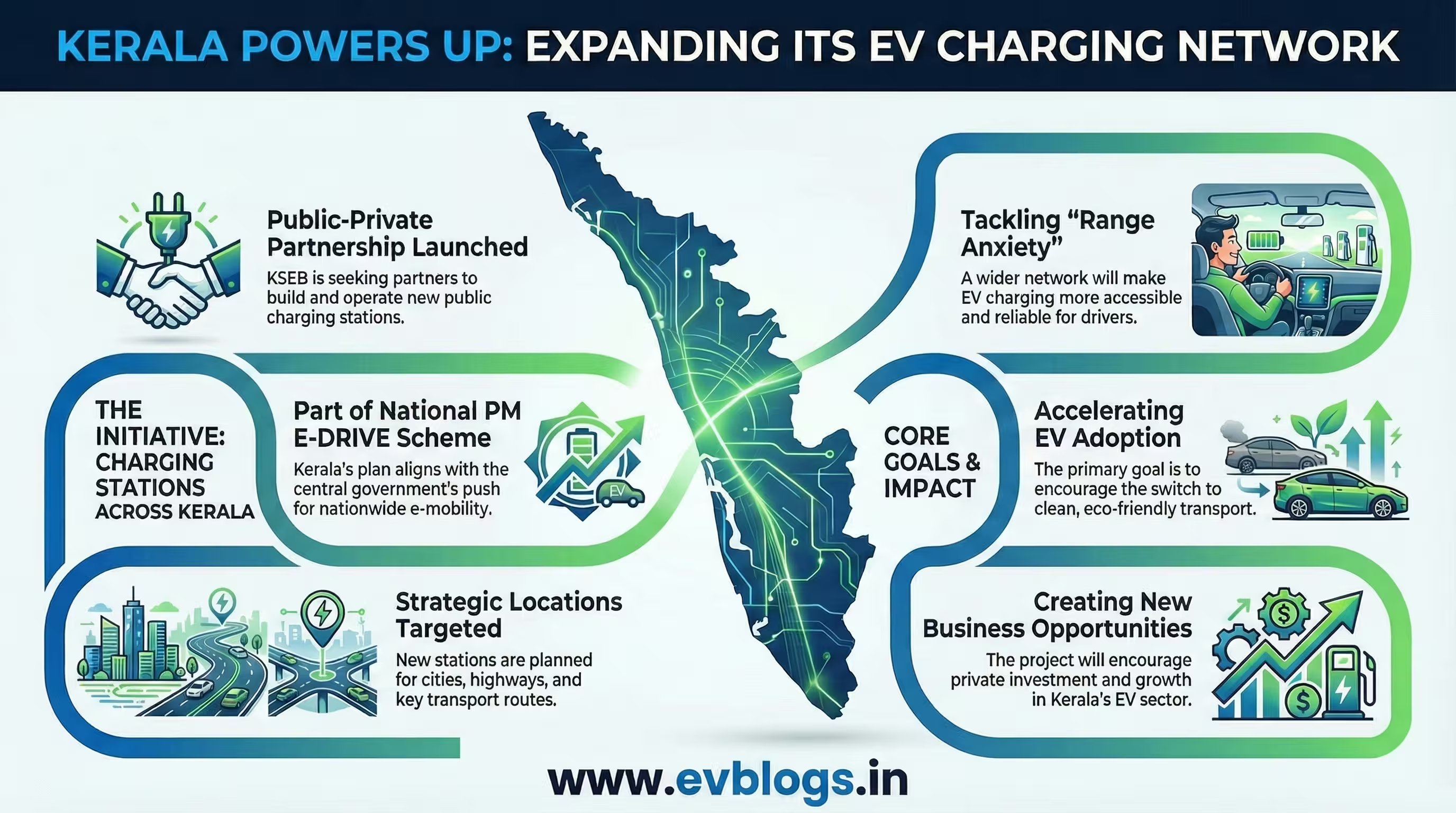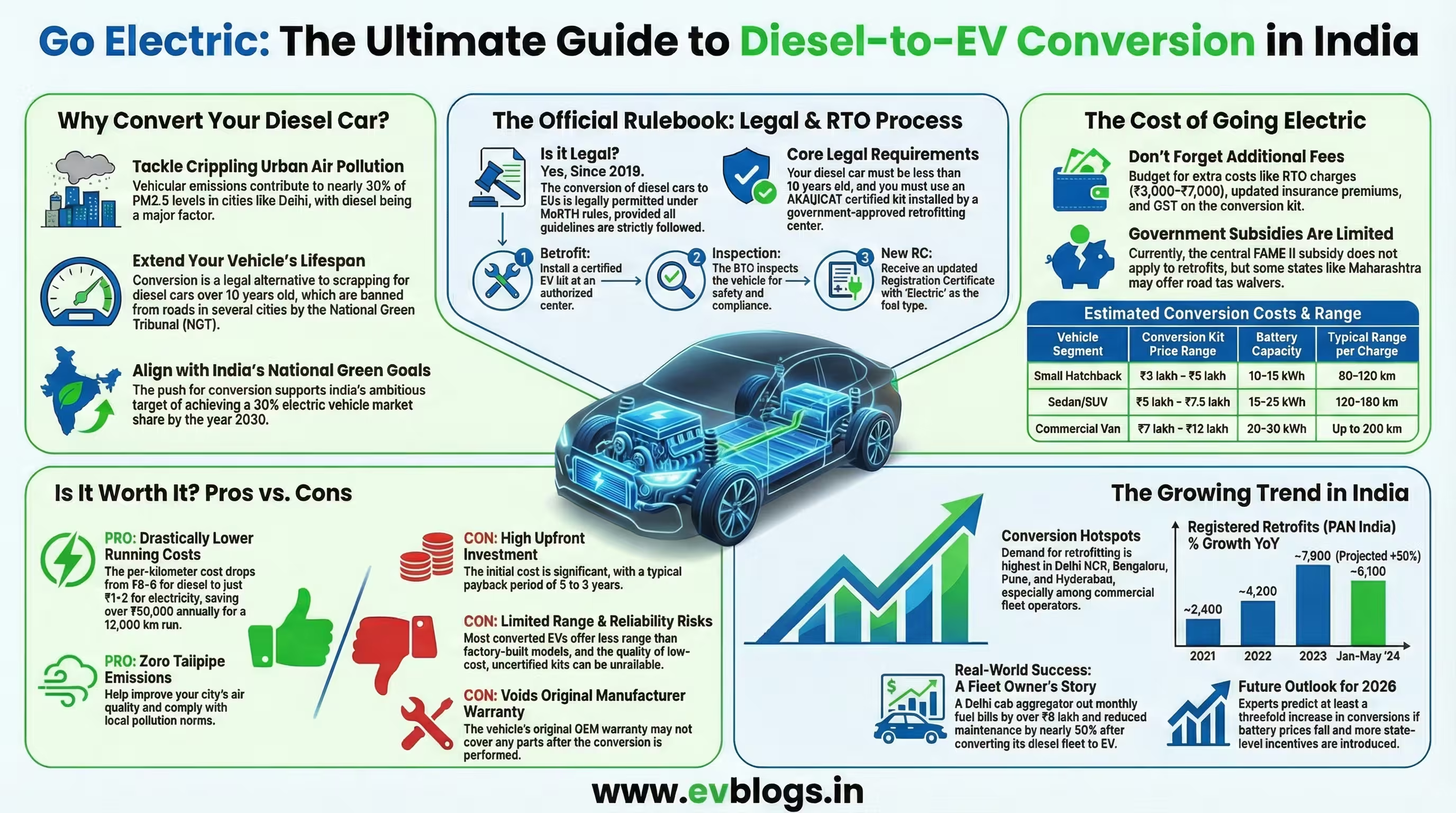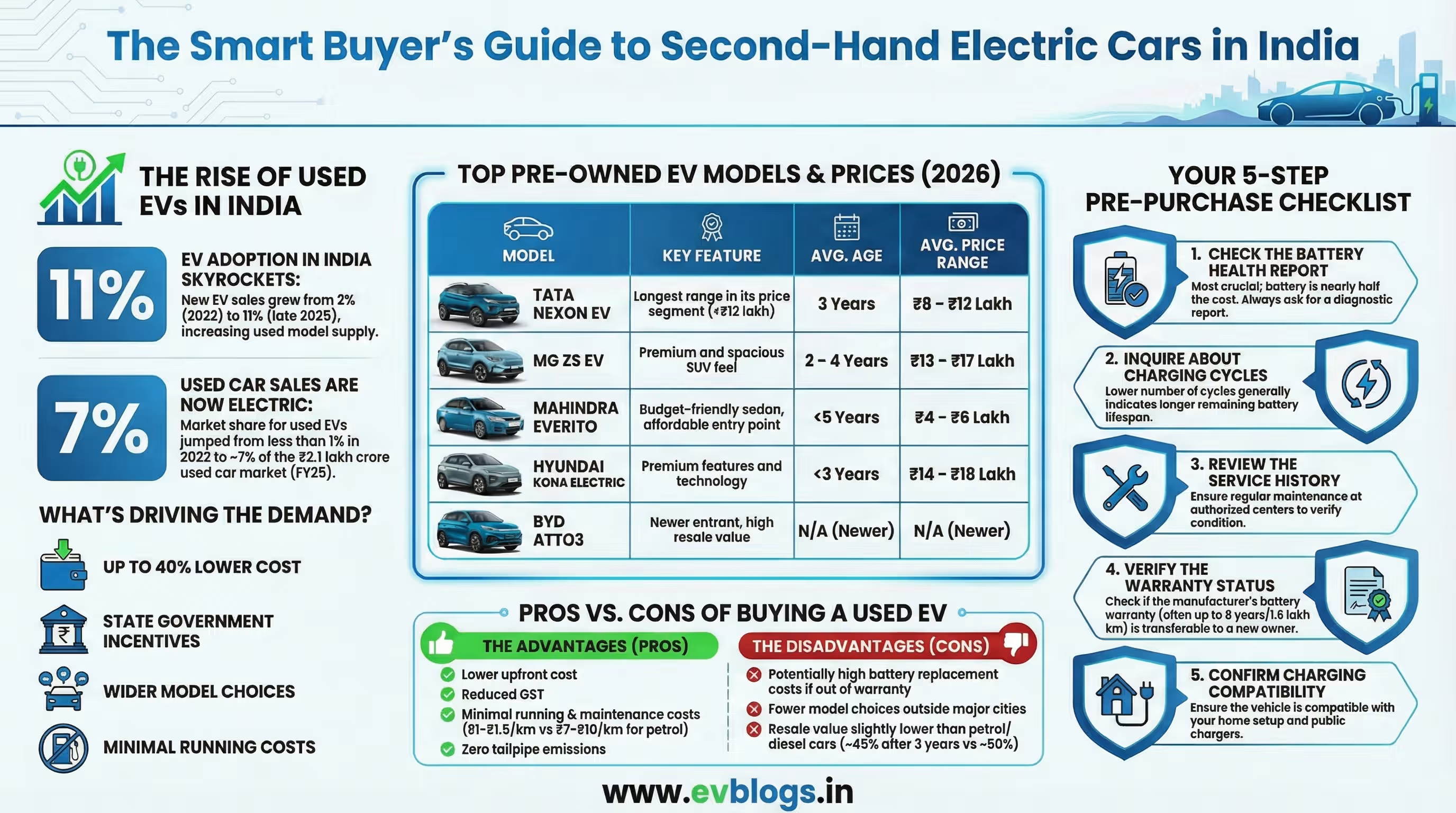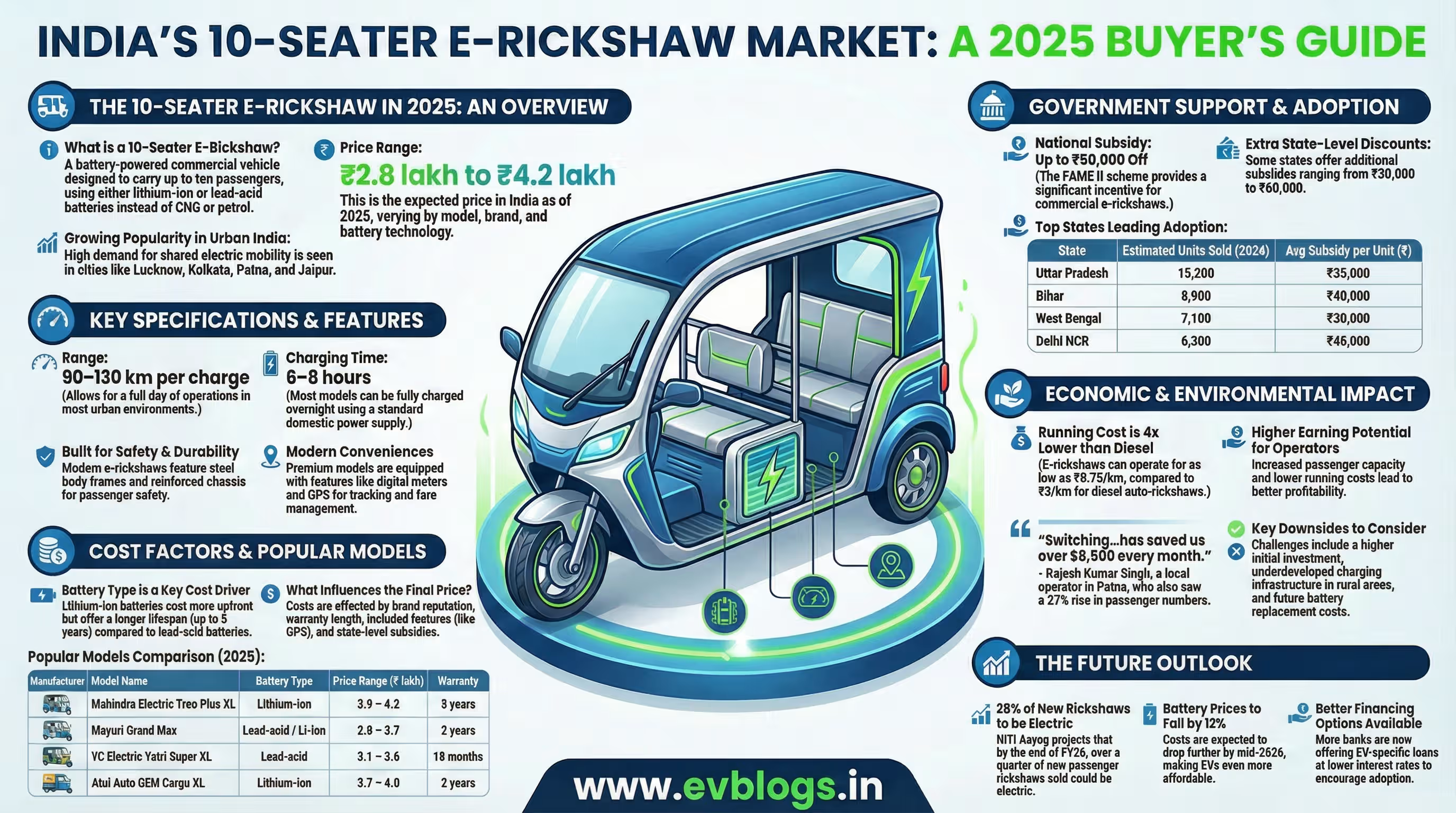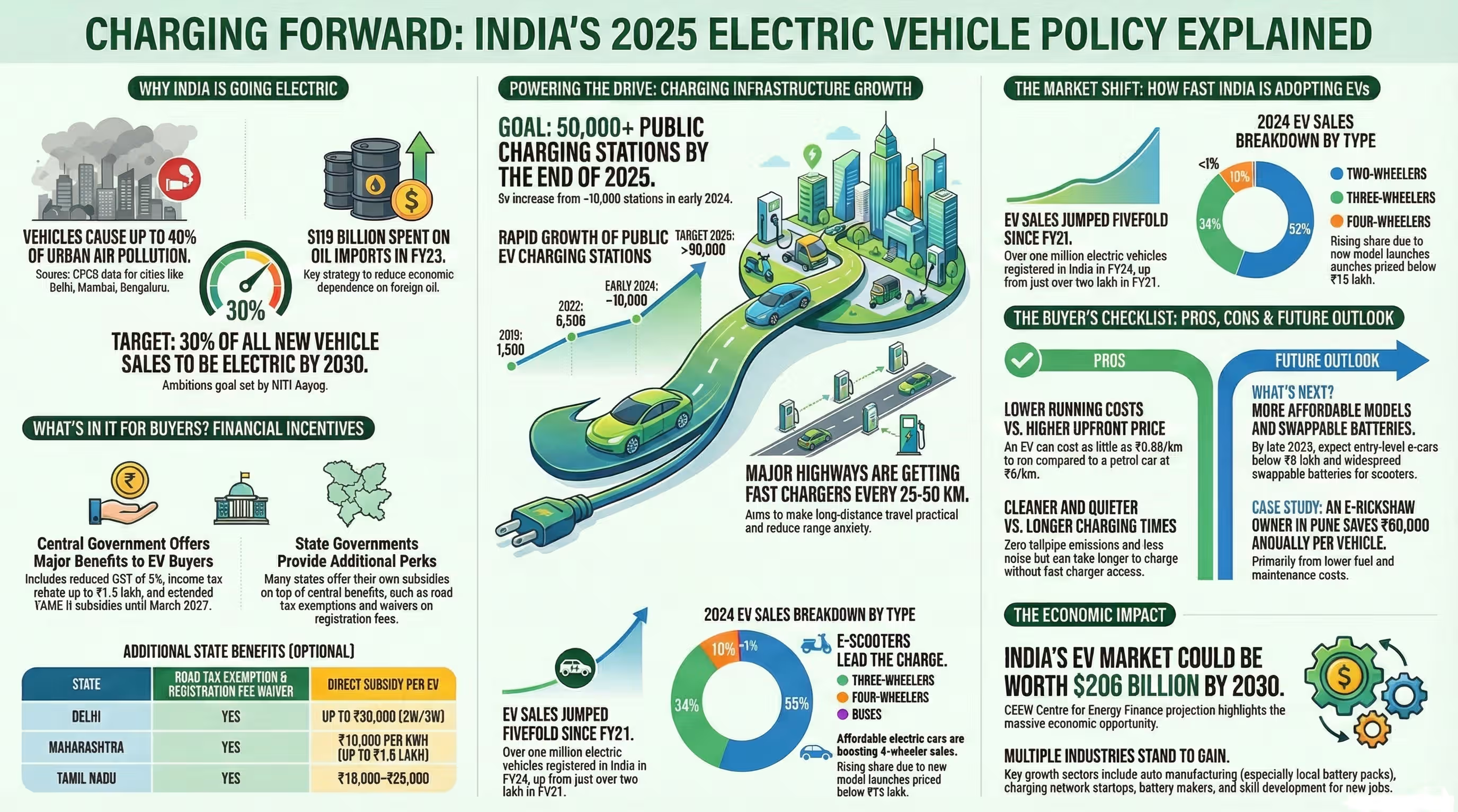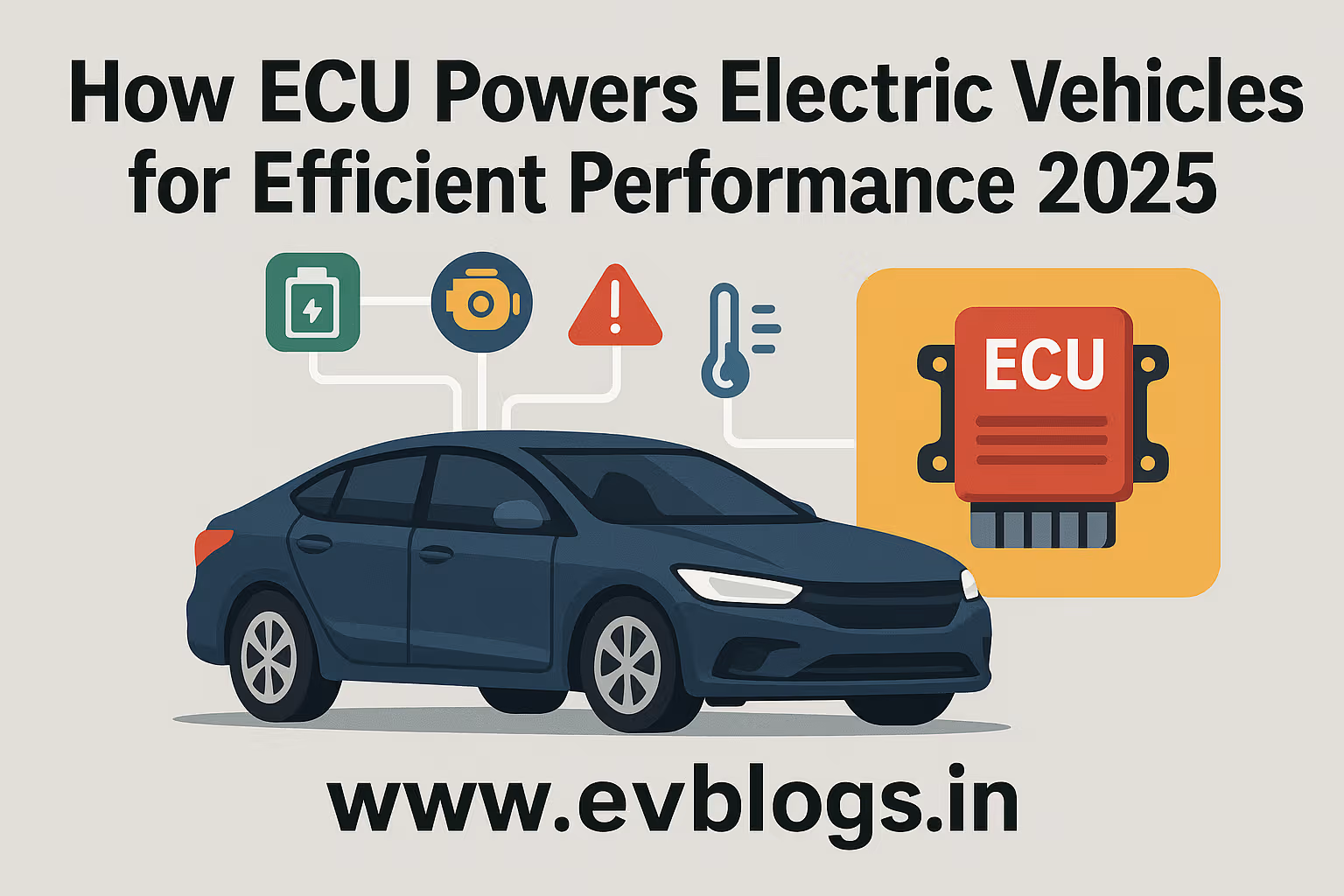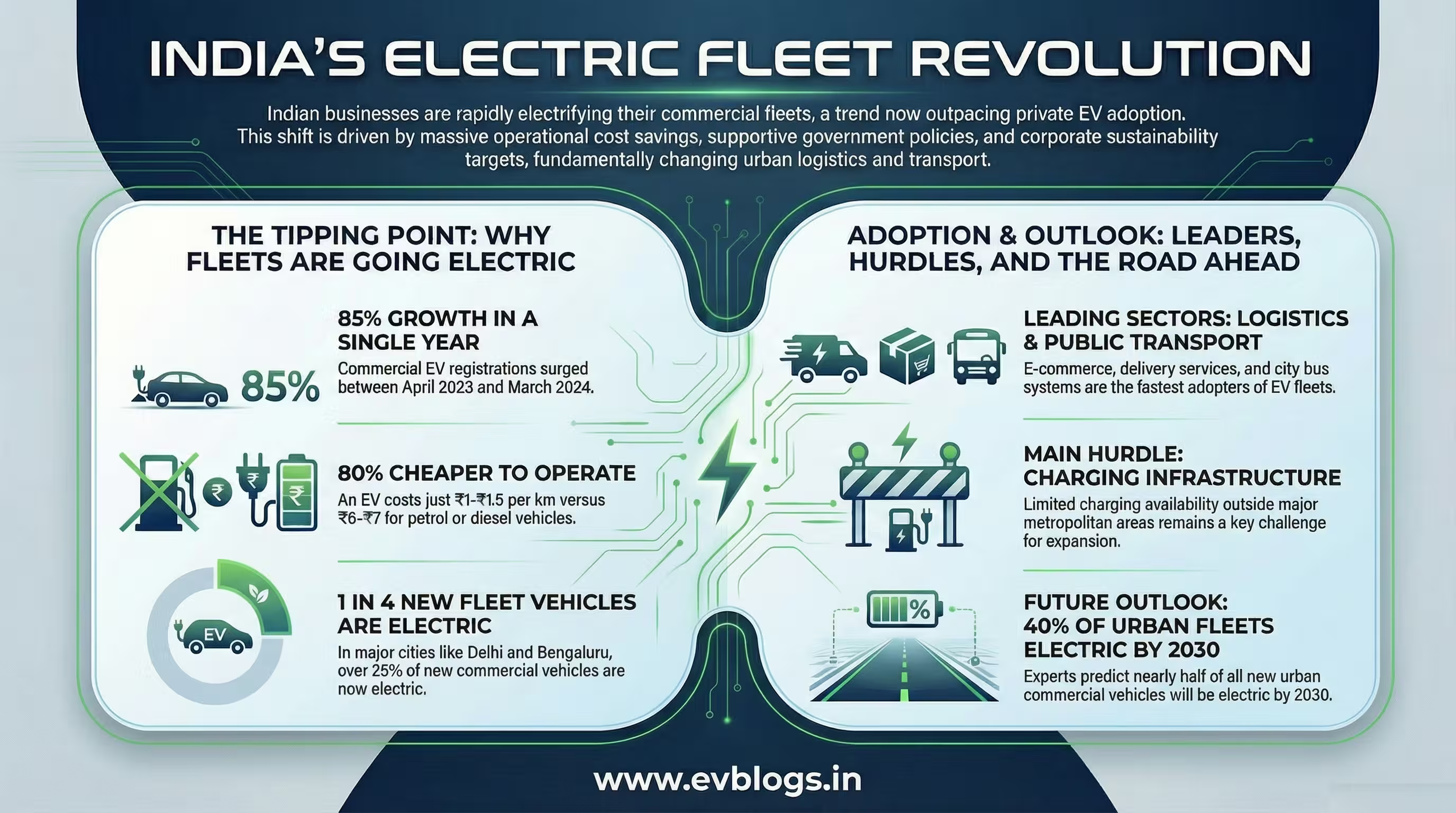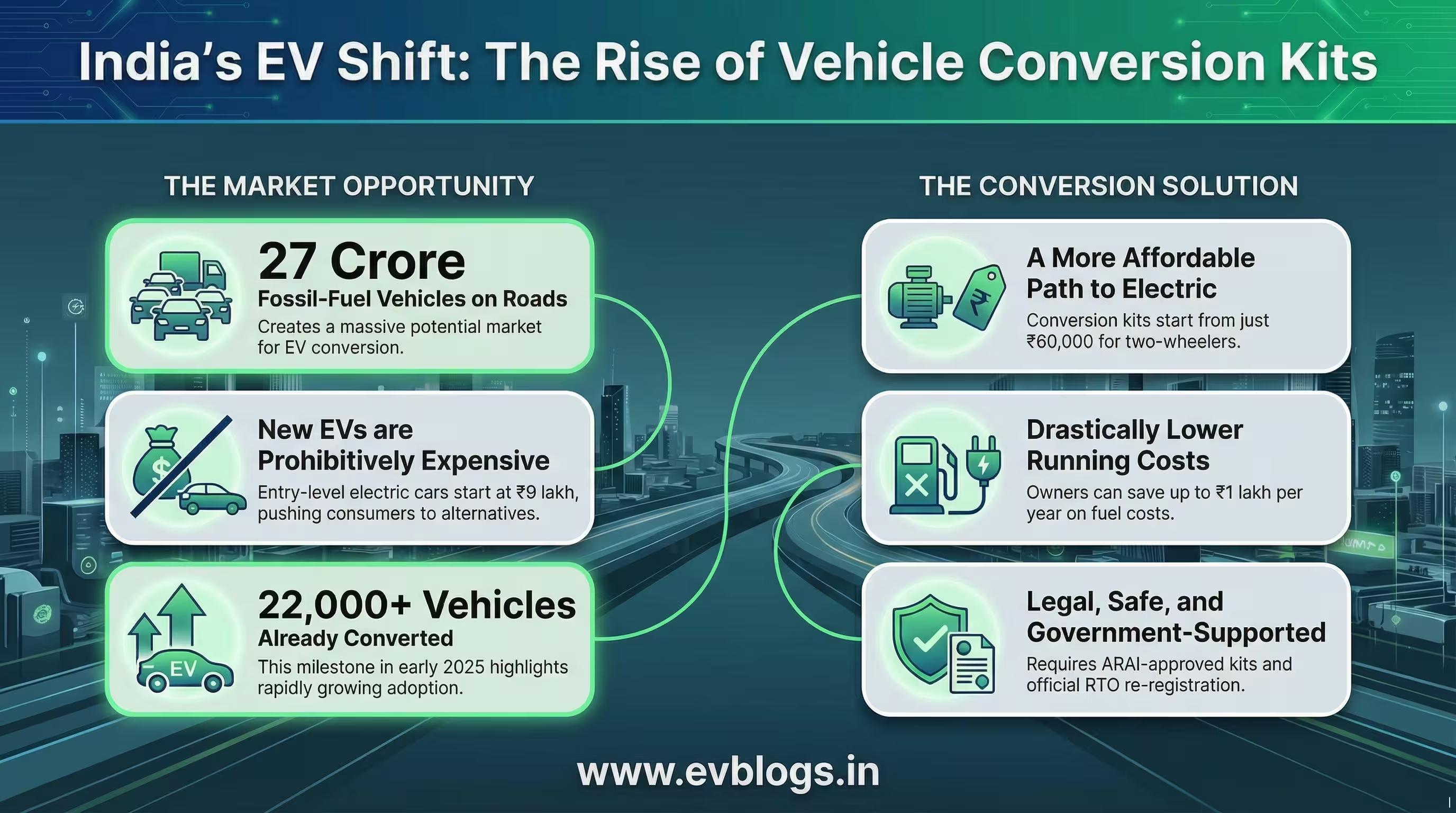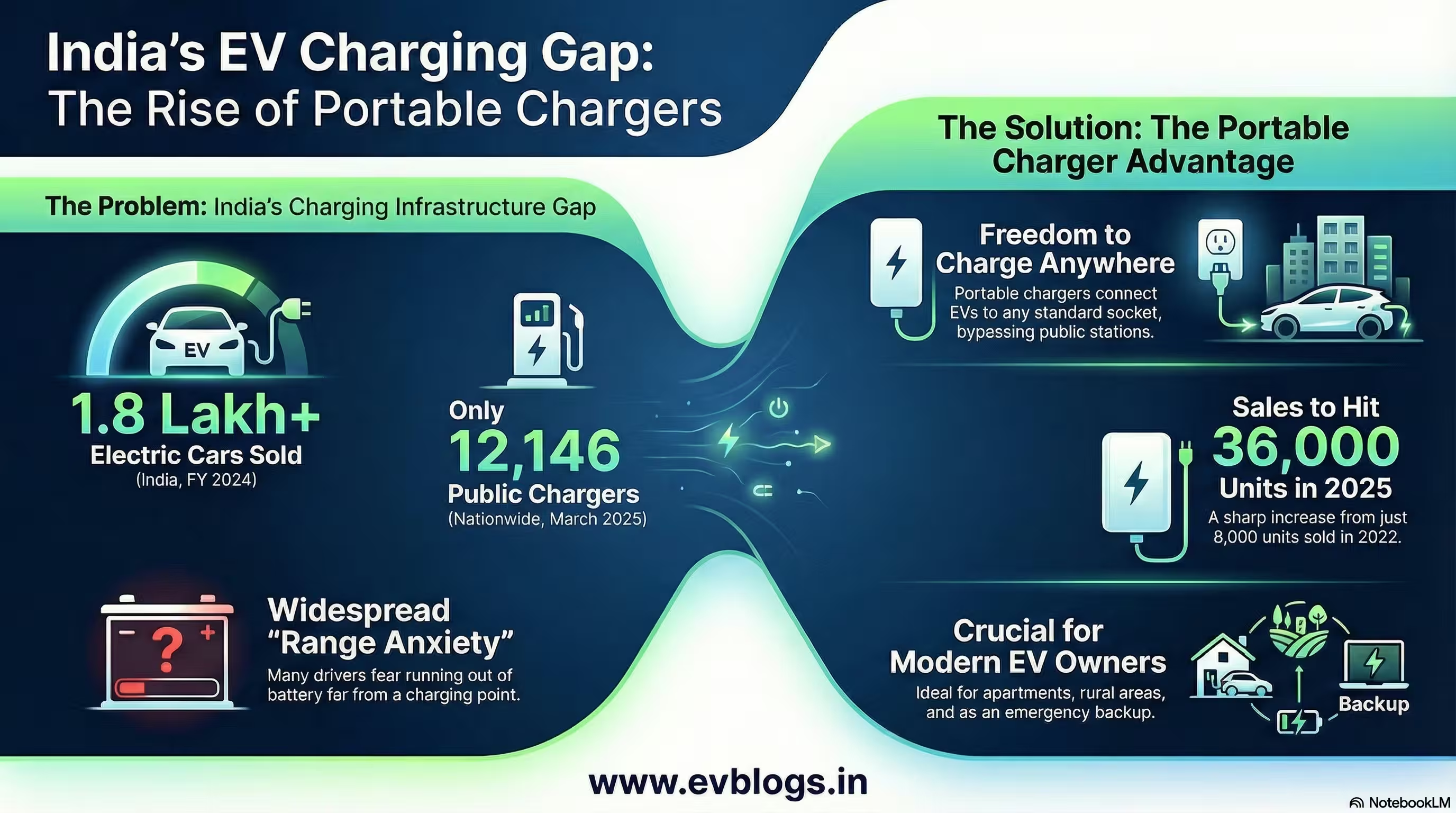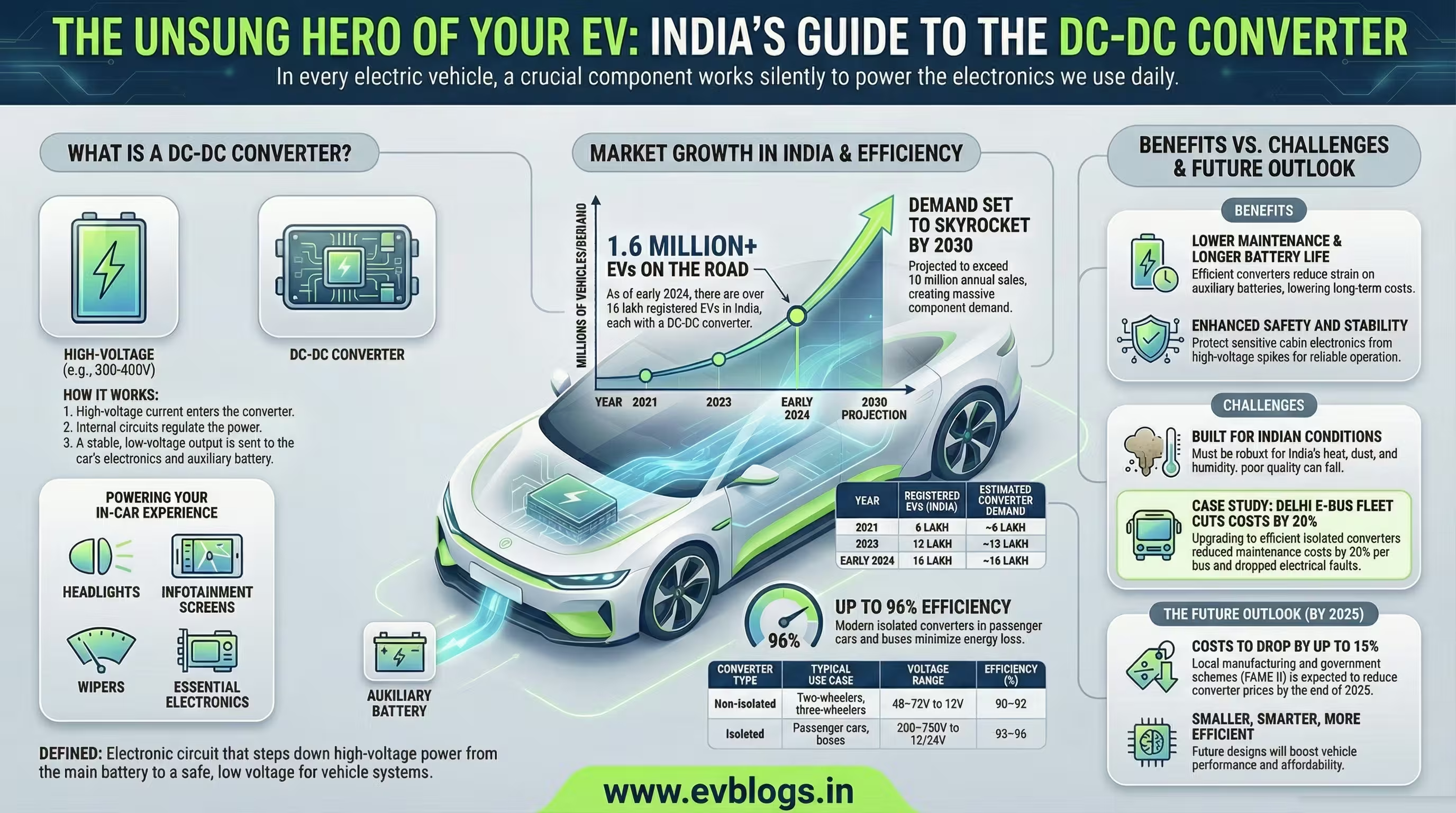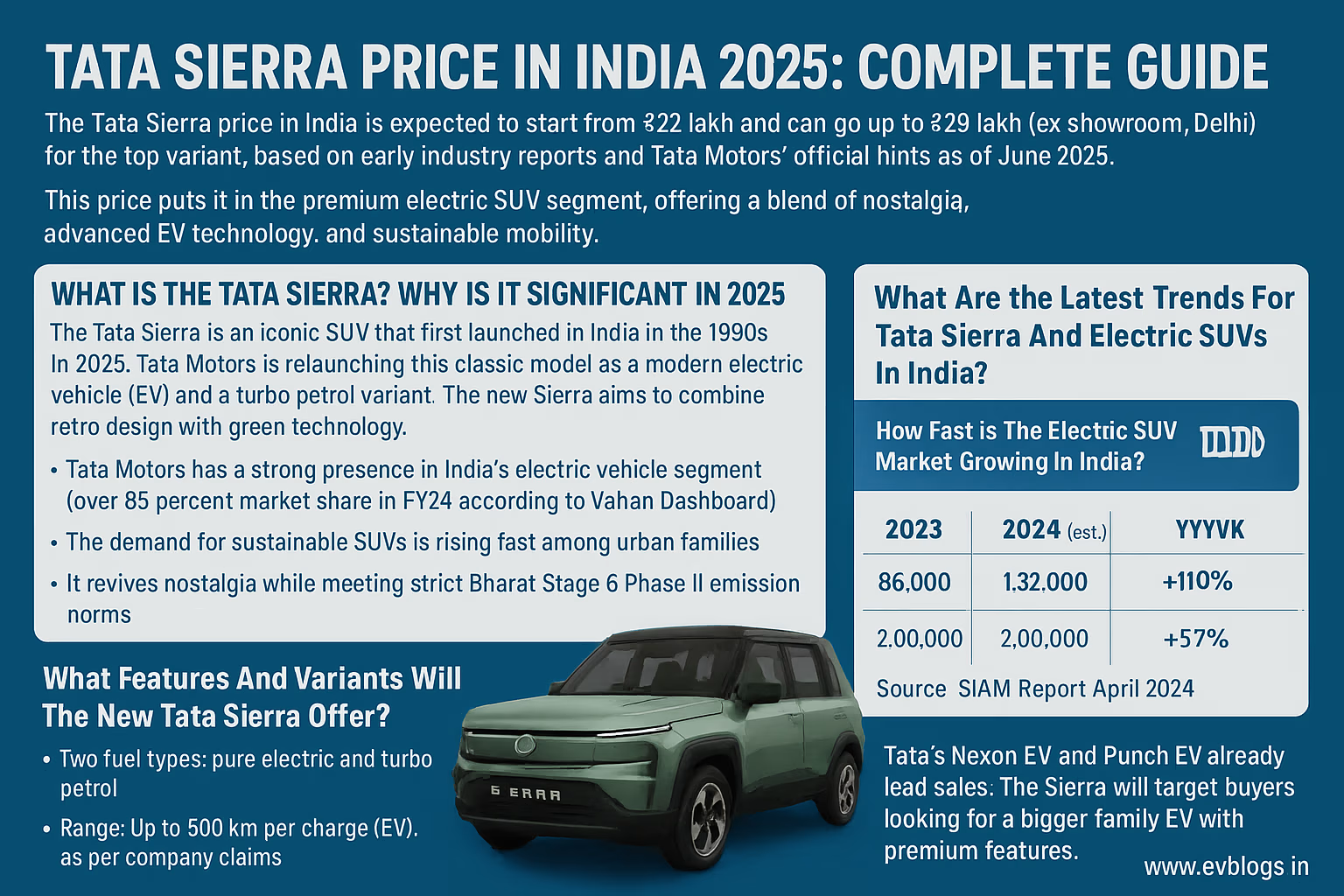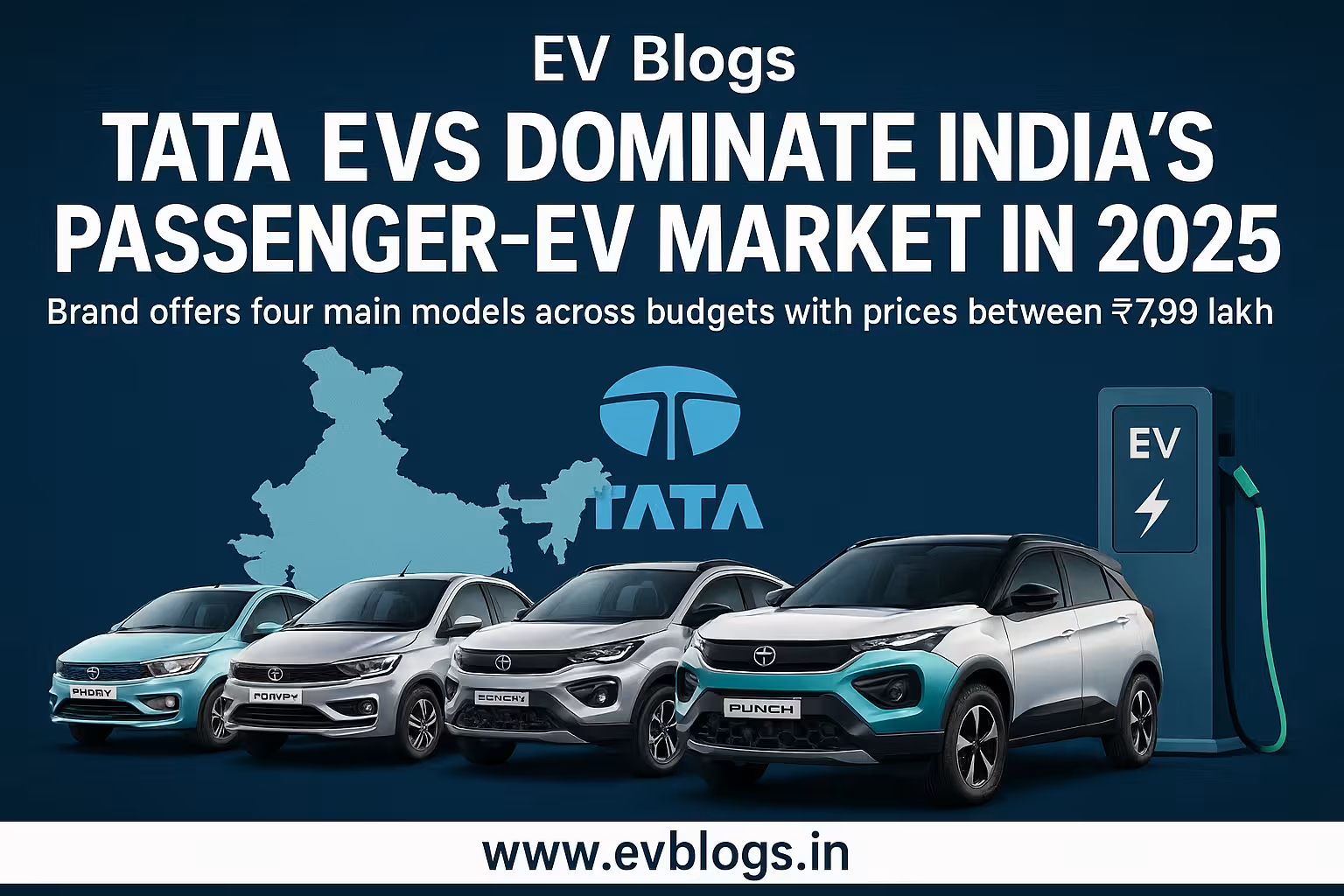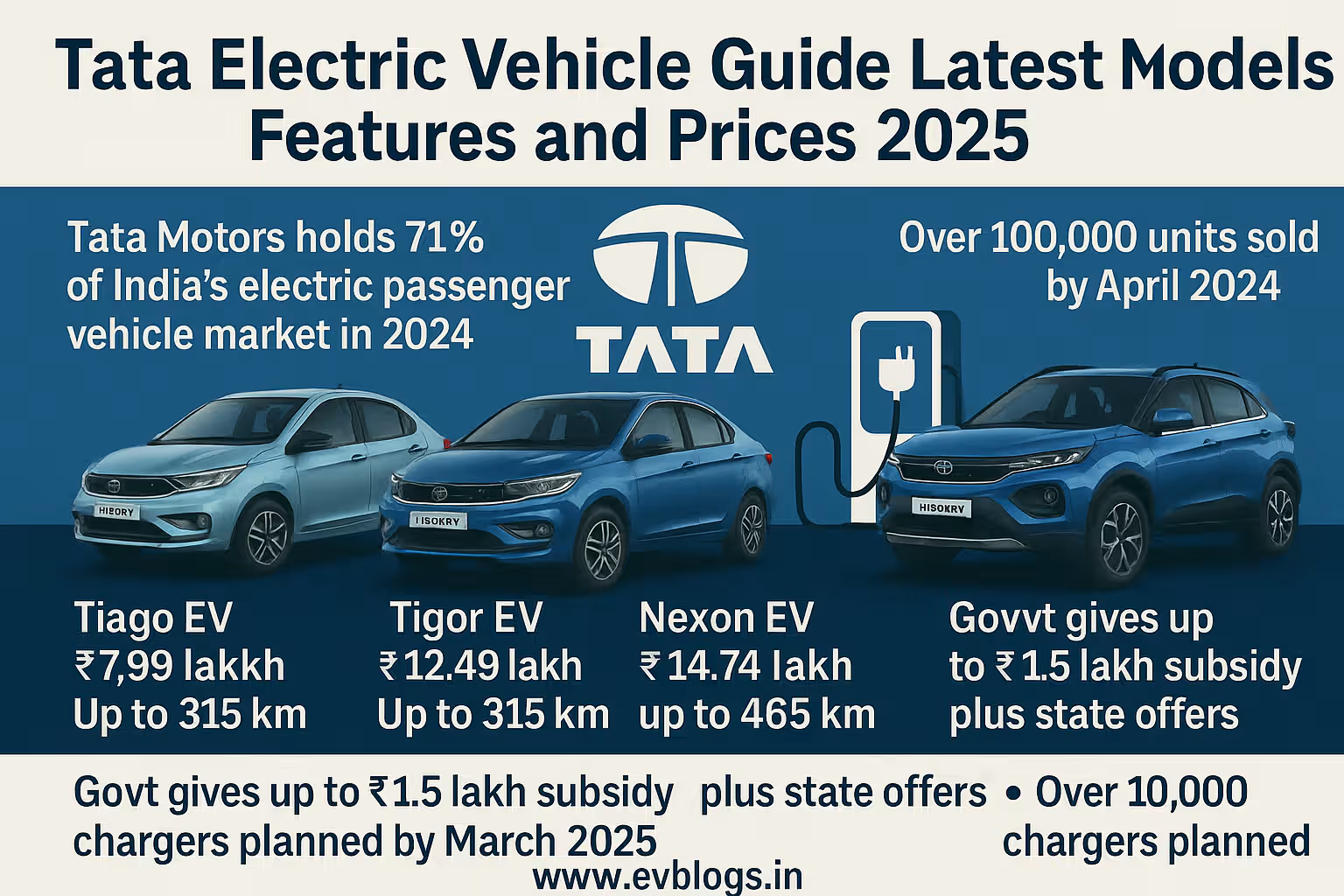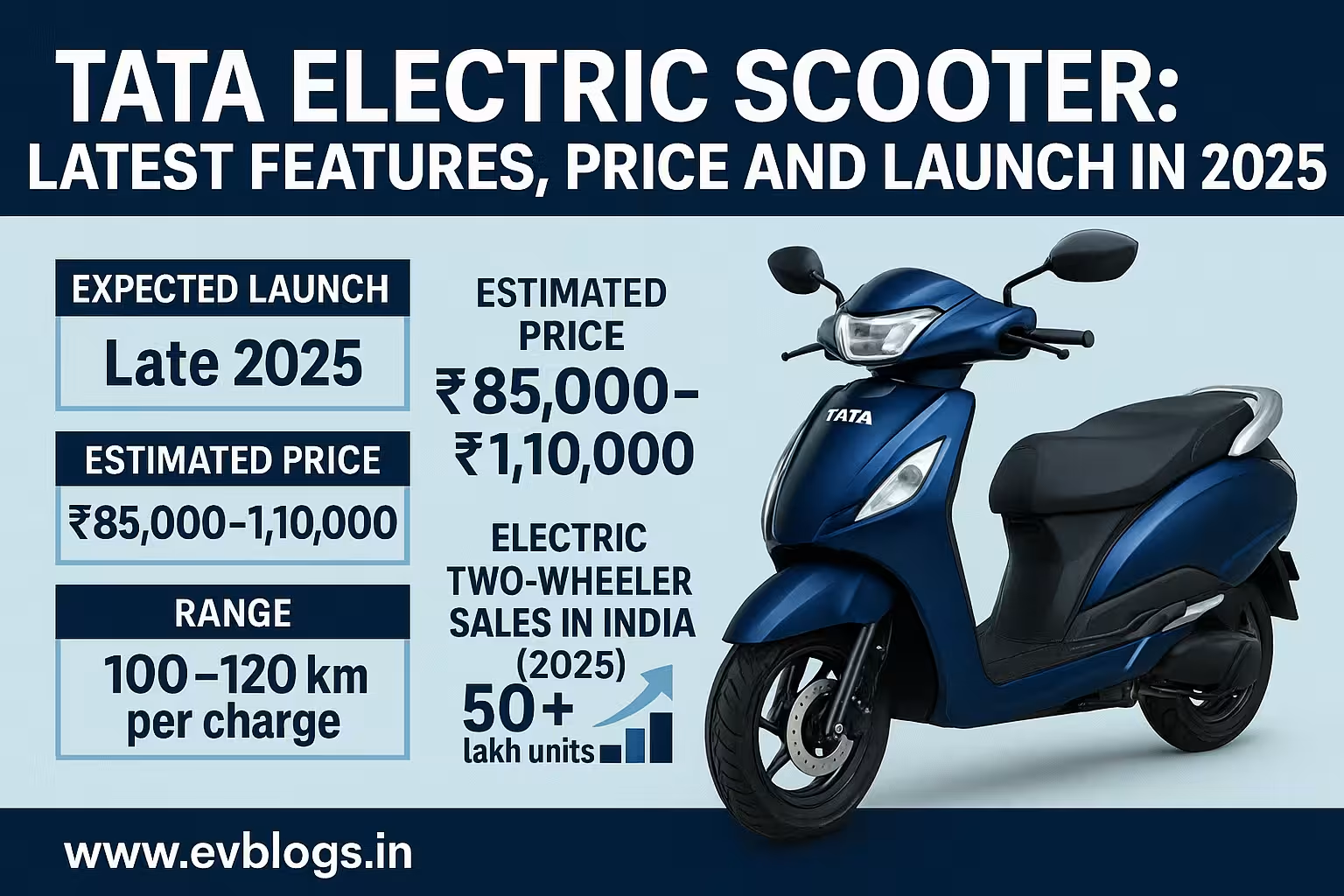Hedhvick Hirav
Hedhvick Hirav is a dedicated EV researcher and editor with over 4 years of experience in India’s growing electric vehicle ecosystem. Their contributions have been recognized in leading sustainability publications and automotive journals.
Summarize & analyze this article with
Choose an AI assistant and open this article directly:
Tip: if the AI doesn’t fetch the page automatically, paste the article URL manually.
Electric Vehicle Resale Value in 2025: Trends, Data & Practical Insights
Electric vehicle resale value is a top concern for Indian buyers considering the shift from petrol or diesel to electric cars. In 2025, as per the latest data from the Society of Indian Automobile Manufacturers (SIAM) and industry reports, EVs are closing the gap with ICE (Internal Combustion Engine) vehicles in terms of resale value—thanks to improved battery life, government incentives, and growing demand. Understanding the factors affecting electric vehicle resale value is crucial for making informed decisions, whether you’re a first-time buyer, fleet operator, or investor in India’s evolving mobility landscape.
What Is Electric Vehicle Resale Value and Why Does It Matter in 2025?
Resale value refers to the price a vehicle commands when sold in the used market after a certain period. For electric vehicles (EVs), resale value has historically lagged behind ICE vehicles due to concerns about battery degradation, limited charging infrastructure, and rapid technological advancements.
Why does it matter now?
By 2025, India’s EV market is maturing rapidly:
- Sales of EVs crossed 17 lakh units in FY 2023–24 (Ministry of Heavy Industries)
- Battery technology costs have fallen by over 80% since 2012 (IRENA)
- Government schemes like FAME-II and state-level subsidies are boosting consumer confidence
A higher electric vehicle resale value means lower total cost of ownership and increased financial security for buyers. With more Indians opting for sustainable transport solutions, understanding EV depreciation trends is vital.
Key Trends Shaping Electric Vehicle Resale Value in India
How Has EV Resale Value Changed Over the Years?
According to OLX Autos and CarDekho’s Used Car Market Report 2024:
- Average resale value of popular EV models improved from ~35–40% (in 2020) to 48–55% in 2024 after three years of use
- In comparison, ICE vehicles average ~52–58% after three years
- The gap is shrinking due to higher demand and better perception of battery longevity
Table 1: Average Three-Year Resale Value Comparison (India, April 2024)
| Vehicle Type | Average Resale Value (%) | Example Models |
|---|---|---|
| Electric Vehicles | 48–55 | Nexon EV, ZS EV |
| Petrol/Diesel Cars | 52–58 | Swift, Creta |
| Hybrids | 54–59 | City Hybrid |
Source: CarDekho Used Car Market Report 2024
What Are the Main Factors Affecting EV Resale Value?
Several factors directly impact how well an electric car retains its value:
- Battery Health & Warranty
- Battery replacement is costly; longer warranties boost confidence.
- Leading manufacturers now offer up to eight years warranty on batteries.
- Charging Infrastructure
- More public charging stations = higher demand = better resale.
- India had over 12,000 public charging points by March 2024 (CEA).
- Brand Reputation & After-Sales Service
- Well-supported brands see less depreciation.
- Government Incentives
- Lower GST rates (5% vs. up to 28% for ICE), registration waivers.
- Model Updates & Tech Obsolescence
- Rapid tech improvement can hurt older models’ value.
Current Data: How Do Electric Vehicles Fare on Resale in India?
Are Certain Electric Cars Retaining Value Better Than Others?
Yes. According to Spinny’s “EV Used Car Index Q1-2024”, compact SUVs and well-known brands fetch stronger resale values due to:
- Higher demand among urban buyers
- Better battery management systems
- Widespread service networks
Case Example:
A three-year-old Nexon EV currently retains up to 54% of its original ex-showroom price if serviced regularly and battery health is above 90%, according to Spinny’s platform data.
What About Two-Wheelers and Commercial Vehicles?
The scenario is different for two-wheelers:
- E-scooters like Ather and Ola have average three-year resale values of 45–50%
- ICE scooters still fare slightly better at 50–55%, but gap narrowing fast
For commercial vehicles (e.g., e-rickshaws):
- High usage leads to faster depreciation (~35–42% retained after three years)
- Battery leasing models can improve perceived value
Pros & Cons: The Realities of Electric Vehicle Depreciation
What Advantages Do EVs Offer Regarding Resale?
Pros:
- Lower Running Costs: TCO calculators show savings of ₹1–2 lakh over five years compared to petrol cars.
- Longer Warranties: Batteries now covered up to eight years/1.6 lakh km by major brands.
- Rising Demand: Used EV searches grew by 62% YoY on OLX Autos in late 2023.
Cons:
- Battery Replacement Anxiety: A new lithium-ion pack may cost ₹3–7 lakh if out-of-warranty.
- Tech Obsolescence: Older models without fast charging or modern features see steeper drops.
- Limited Rural Penetration: Lower demand outside metros depresses rural resale values.
Industry Benchmarks: Insurance Performance & Cost Metrics
How Does Insurance Affect Electric Vehicle Resale Value?
Insurance costs and claim settlement ratios impact both affordability and peace of mind—a key factor in used car sales.
Table 2: Top Insurers’ Claim Settlement Ratios & Premiums for EVs (IRDAI Annual Report FY23–24)
| Insurer Name | Claim Settlement Ratio (%) | Avg Annual Premium (₹) – Compact EV |
|---|---|---|
| ICICI Lombard | 97.8 | ₹17,500 |
| HDFC ERGO | 98.1 | ₹16,800 |
| Bajaj Allianz | 96.9 | ₹18,100 |
| New India Assurance | 94.7 | ₹15,600 |
Source: IRDAI Annual Report FY23–24; Policybazaar pricing data April 2024
Higher settlement ratios give buyers more confidence when purchasing pre-owned electric cars.
Practical Insights for Maximising Your Electric Vehicle’s Resale Value
How Can Owners Boost Their EV’s Future Price?
- Maintain Battery Health
- Avoid deep discharges; charge regularly but not always up to full
- Use Authorised Service Centres
- Record all maintenance; digital service history improves trust
- Retain Original Accessories
- Chargers/cables add value at sale time
- Transferable Extended Warranty
- Buy/transfer warranty coverage if possible—this increases buyer interest
- Advertise Battery Condition
- Use OBD tools or get a certified battery health report before listing
Does Location Matter When Selling Used EVs?
Absolutely!
Metro cities like Delhi NCR, Mumbai, Bengaluru command higher resale prices due to:
- More public chargers
- Greater consumer awareness
- Stronger secondary market demand
In contrast, Tier-II/III cities may see lower offers due to infrastructure gaps.
Data Table: Adoption Rates vs. Average Resale Value by City (Q1–Q2 FY25)
| City | % Share of Used EV Sales (India Total) | Avg Three-Year Retained Value (%) |
|---|---|---|
| Delhi NCR | 29 | 56 |
| Mumbai | 18 | 54 |
| Bengaluru | 14 | 53 |
| Chennai | 9 | 51 |
| Other Cities* | <30 | ~46 |
Other Cities includes Ahmedabad, Pune, Kolkata etc.
Source: Spinny & OLX Autos marketplace analytics Q2 FY25
Future Outlook: Where Is Electric Vehicle Resale Value Heading by Late-2025?
According to KPMG’s “India Automotive Outlook – June 2024”:
“EV resale values are expected to stabilise around 58–60% after three years by end-2025 as battery costs fall further and charging networks expand.”
Supporting this trend are factors like:
- Government push for local cell manufacturing under PLI schemes (reducing replacement costs)
- Auto OEMs offering buyback guarantees on select models
- Entry of certified pre-owned EV programs from major brands
Chart Description:
Imagine a line graph showing average three-year retained value rising from ~38% in FY20 up to projected ~60% by end-FY25 for mass-market electric cars.
Sector Impact: What Does This Mean for Indian Consumers and Fleets?
How Will Fleet Operators Benefit?
Fleet owners—especially ride-hailing and last-mile delivery companies—stand to gain as residual values rise:
- Lowered lease EMIs due to better salvage predictions
- Improved TCO calculations make business cases stronger
- Flexible fleet upgrades as secondary market matures
Example:
A Bengaluru-based cab aggregator switched half its fleet (120 cabs) from diesel sedans to compact e-SUVs in early FY24; company records indicate that projected five-year depreciation dropped by almost ₹60 lakh, per their internal assessment shared with CII-Auto Expo delegates.
What Should Individual Buyers Consider Before Purchase?
Before buying an electric vehicle with future resale in mind:
- Choose established brands/models with wide service networks
- Opt for extended warranties covering both vehicle and battery pack
- Factor in location—urban sellers enjoy stronger returns than rural areas
- Stay updated on government incentives that may affect second-hand pricing
Quick Recap: Key Stats & Takeaways on Electric Vehicle Resale Value
Here’s what you must remember about electric vehicle resale value in India for FY25:
- Resale gap between electric and ICE vehicles narrowed sharply: Now at ~3–8%
- EV adoption rising fast: Over 17 lakh units sold in FY23–24; used EV sales up 62% YoY
- Battery longevity improving: Most new models offer 8-year warranties
- Metro cities offer best resale: Delhi NCR leads with 56% retained after three years
- Top insurers settle >97% claims on insured electric vehicles (IRDAI data)
- Future forecast: Three-year retained values could reach up to 60% by late FY25
- TCO advantage: Savings of up to ₹2 lakh+ over five years versus comparable petrol/diesel models
People Also Ask About Electric Vehicle Resale Value
Q1: Do electric cars have lower resale value than petrol/diesel cars?
A1: The gap has narrowed significantly; as per industry reports in early FY25, top-selling Indian electric cars now retain about 48–55% after three years compared with petrol/diesel at 52–58%. By end-FY25 this difference may be negligible.
Q2: Which factors most affect an electric vehicle’s resale price?
A2: Battery health/warranty status, model popularity, brand reputation, local charging infrastructure availability, age/kilometres driven—all play critical roles.
Q3: Is it easy to sell a used electric car in India?
A3: Yes—in metros with good infrastructure and growing awareness; platforms like Spinny or OLX Autos report strong growth (+62%) in used EV listings/sales through early FY25.
Q4: How much does battery degradation impact second-hand prices?
A4: Significant battery degradation (>20%) can reduce sale price by ₹50k–₹2 lakh depending on model/age; well-maintained packs fetch closer-to-new prices.
Q5: Will my insurance premiums be higher if I own an old electric car?
A5: Not necessarily—premiums are similar or slightly lower than comparable ICE vehicles due to fewer moving parts; top insurers maintain claim settlement ratios above 97% for EV policies according to IRDAI FY23–24 data.
Q6: Are government incentives available for used/electric car buyers?
A6: Some state-level incentives apply only on new purchases but certain GST reductions/road tax waivers can benefit subsequent owners depending on local policies.
Ready To Make Your Move Into An Electric Future?
The Indian auto market is entering an era where owning—and reselling—an electric vehicle makes solid financial sense! Whether you’re buying new or selling pre-owned, understanding current trends around electric vehicle resale value empowers you as a smart consumer or investor.
Want personalised advice? Compare live quotes from top insurers using IRDAI-backed platforms or consult with trusted dealers before your next purchase/sale decision!
Your journey towards sustainable mobility starts with informed choices today—don’t miss out!


